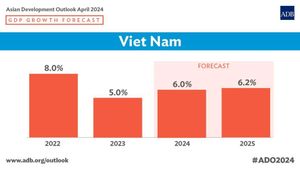Consumers are facing numerous challenges as they get ready for the upcoming year, 2025. With financial markets fluctuaging and economic uncertainty looming, financial experts stress the necessity for individuals to future-proof their finances. Implementing sound financial strategies can be the difference between weathering the storm and struggling to keep afloat.
One key strategy is opening high-yield checking accounts, which can provide much-needed interest on otherwise dormant funds. Currently, national average interest rates for traditional checking accounts hover around only 0.08%. Yet, online institutions are offering rates like 6.00% APY on accounts like the Primis Bank Novus Checking, accompanied by perks such as fee reimbursements and rewards on debit purchases.
Connexus Credit Union also features its Xtraordinary Checking Account with enticing benefits — 1.75% APY with no minimum balance requirement. Meanwhile, Genisys Credit Union's Genius High-Yield Counting offers impressive rates up to 6.75% APY, albeit limited to lower balances. This broad array of options allows consumers to earn more from their checking accounts than many traditional banks offer.
Despite the allure of these high-yield accounts, budgeting remains at the forefront of successful financial management. Maureen Milliken notes, "Having a budget is important for spending less and saving more." Regardless of income levels, establishing and maintaining a budget can help individuals track financial flows and prioritize necessities over discretionary spending.
Many consumers, often overwhelmed with daily expenses, avoid budgeting altogether. To combat this, Milliken suggests simplifying the budgeting process. Utilizing tools available for tracking finances, including apps or simple spreadsheets, can assist anyone in maintaining awareness of their financial standing.
Financial literacy is another cornerstone for sustainable finances. Understanding the ins and outs of money management can significantly influence one's financial decisions. Milliken points out, "Most people know less than they think they do about financial risk." Engaging with various educational resources, such as those from credit unions and government websites, is a great way to bolster one's financial knowledge base.
Another significant area is credit management. Knowing your credit score and the factors affecting it is pivotal. Keeping tabs on payment histories and credit utilization can help individuals maintain good credit standing. According to Milliken, "Your credit score is influenced by timely payments and credit utilization." With this awareness, consumers can take proactive steps to improve their credit, whether paying off debts systematically or negotiating terms with creditors.
For those anticipating tax returns, Milliken warns against the impulse to splurge with newfound funds. Instead, she recommends, "A tax return is your own money, make good use of it.” Allocated correctly, such funds could either bolster emergency savings or address outstanding debts, providing longer-term financial stability.
Milliken's final piece of advice aligns with empowering individuals: "You control your money, make your financial life sustainable." While it's impossible to predict the financial climate with certainty, taking control today can pave the way for security tomorrow.
There are numerous high-yield checking accounts and savings options available, alongside practical strategies for budgeting, financial literacy, and credit management. By employing these strategies, consumers can effectively prepare for the uncertainties of 2025, turning potential pitfalls of debt and inadequate savings plans from looming threats to manageable opportunities.



